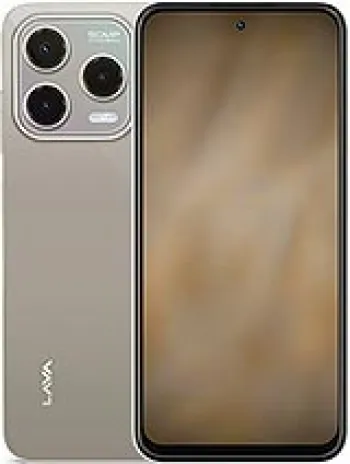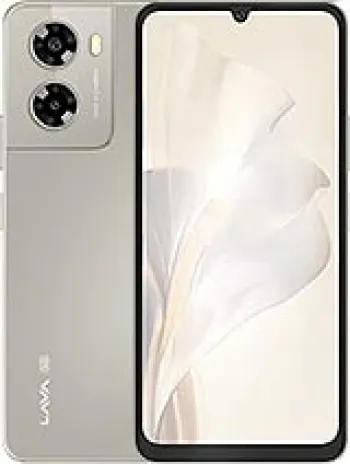
Overview of Lava Iris 401
The Lava Iris 401 was released in January 2015, marking an exciting entry into the budget smartphone category. This device, although categorized as a basic smartphone, aimed to provide essential smartphone functionality to users not looking for high-end features. Discontinued now, it represented an affordable choice for users at its time of release.
Design and Build
In terms of design, the Lava Iris 401 possesses a straightforward and utilitarian design. Measuring 126 x 65 x 10.4 mm, it was designed to fit comfortably in hand with a 4.0-inch display that meets the basic necessities of smartphone displays. Despite its plastic build, the phone felt robust for its range, providing users with a sense of reliability and durability. It was launched in three color options: Black, Blue, and Red, offering users a touch of personalization.
Display
The device features a 4.0-inch TFT display with a resolution of 480 x 800 pixels. While not offering the same vibrancy and sharpness as higher-end models, it aimed to deliver satisfactory display quality for basic usage scenarios such as text messaging, browsing, and light multimedia consumption. With a pixel density of ~233 ppi, the screen offers a modest viewing experience.
Performance and Software
Under the hood, the Lava Iris 401 is powered by a Dual-core 1.3 GHz processor. Although the performance may seem modest by today's standards, it was sufficient for basic multitasking and operation of standard Android applications at the time. Running on Android 4.2.2 (Jelly Bean), it provided a decent user experience with access to fundamental Android apps.
Memory and Storage
The internal storage stands at a mere 512MB with 256MB of RAM, which was considered minimal even at the time of its release. However, it offered a microSDHC slot that allowed users to expand storage capacity for additional files and applications, which was a significant benefit for users who needed more storage space than what was provided.
Camera Features
The Lava Iris 401 comes with a single 3.15 MP rear camera featuring an LED flash, enabling users to capture basic photos and videos. While it lacks advanced camera features and high resolution, it catered to users seeking a simple point-and-shoot experience. On the front, there is a VGA camera, suitable for basic selfies and video calls, though the quality is best described as utilitarian.
Battery Life
The device is equipped with a removable Li-Ion 1450 mAh battery. This modest capacity was standard for entry-level smartphones at the time and provided up to 250 hours of standby time and up to 9 hours and 40 minutes of talk time. The ability to remove and replace the battery added a layer of convenience for users, allowing them to swap in a spare battery if needed.
Connectivity and Network
The Lava Iris 401 supports GSM networks through dual SIM slots, making it a versatile option for users needing two separate lines on one device. For internet connectivity, it offers GPRS and EDGE support. Although it lacks 3G or 4G capabilities, it caters to users primarily using voice and text services.
Connectivity Options
This smartphone provides basic connectivity features including Wi-Fi a/b/g/n, Bluetooth 3.0 for a wireless connection to other devices, FM radio, and USB 2.0 interface for wired connections. Although it does not support NFC, it covers the essential connectivity needs for a basic entry-level phone.
Sound and Multimedia
The device is equipped with a loudspeaker and a 3.5mm audio jack, catering to users who prefer wired audio accessories. Although its multimedia capabilities are limited, it enables users to enjoy basic audio playback and radio services through its FM radio feature.
Conclusion
In summary, the Lava Iris 401 is a straightforward and affordable smartphone designed for users seeking essential features without the complexity or cost of high-end devices. Its simple design, basic camera functionality, and expandable storage offer practical benefits for users in need of a phone for essential tasks such as calls, text messaging, and basic internet browsing. While its performance and features may seem limited today, it served its purpose well at the time of its release.
Key Features of Lava Iris 401
- Dual SIM capability
- 4.0-inch TFT display with a resolution of 480 x 800 pixels
- Powered by Android 4.2.2 (Jelly Bean) OS
- Dual-core 1.3 GHz processor
- Expandable storage via microSDHC card
- Main camera with 3.15 MP and LED flash
- FM radio support
- Wi-Fi and Bluetooth 3.0 connectivity
- A-GPS for positioning
- Removable Li-Ion 1450 mAh battery with up to 9 hours and 40 minutes talk time
Drawbacks of Lava Iris 401
- Outdated Operating System: The device runs on Android 4.2.2 (Jelly Bean), which is quite outdated and lacks support for newer apps and security updates.
- Limited Internal Storage: The phone comes with only 512MB of storage and 256MB of RAM, which severely limits the number of apps and data that can be stored and affects overall performance.
- Poor Camera Quality: The main camera is only 3.15 MP, and the front camera is VGA, resulting in low-quality images and videos.
- Low Battery Capacity: It has a 1450 mAh battery, which may not last a full day with moderate usage.
- No NFC Support: The device lacks NFC (Near Field Communication) capability, limiting options for contactless payments and data transfer.
- Basic Display: The 4.0-inch TFT display with a resolution of 480 x 800 pixels offers a lower quality viewing experience compared to modern standards.
- Bluetooth Version: Equipped with Bluetooth 3.0, which is outdated and offers slower data transfer speeds than newer versions.
- Discontinued Status: The device has been discontinued, making it difficult to find support or replacement parts.

View Also
More Phones
All Rights Reserved +14266 Phones © Mobilawy 2025

























